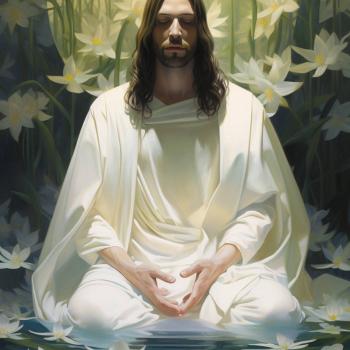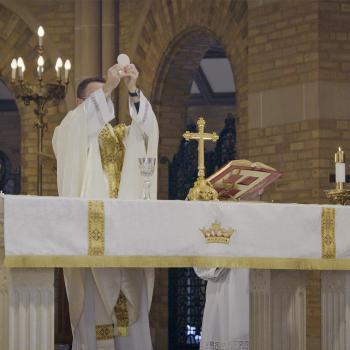Barack Obama's approach in announcing the event seemed just right; somber and serious, he did not celebrate the accomplishment that Americans had been pursuing for almost a decade. Although I do not fall in the camp of Christian Realism to which President Obama belongs, I do believe the president thought that this was an appropriate if regrettable response to a threat to our nation, and I would imagine that his favorite theologian, Reinhold Niebuhr, would concur. Power must be used for good, both would tell us, and to protect the weak and the innocent from those who would do them harm. And given that bin Laden was a bad man trying to do more bad things, he had to be stopped.
I just don't have to celebrate his death.
The Arab Spring
We haven't seen the final outcome of this wave of demonstration and the overthrow or attempted overthrow of a number of powerful leaders in the Arab world, but the images and ideas are stirring—and a real rebuke to those of us who thought we knew best. Our violent overthrow of regimes in Afghanistan and Iraq may or may not lead to stable democratic governments in those countries, but in Tunisia, Egypt, and across the Arab world, people stood up to absolute rulers on their own and demanded freedom and opportunity.
It is the sort of thing that America should wholeheartedly support—advancing freedom has supposedly been one of our reasons for indulging in our otherwise ridiculous Mideast adventure; but our official response to the Arab Spring has sometimes been lukewarm. As we have for half a century, America has been pragmatic in response to the passions that made it a free nation, to the mess of democracy that follows revolution. Wasn't it better, perhaps, for old friends to stay in power, even if they were the enemies of freedom? How else, to use one example, do we justify our close support for the Saudi princes except for the fact that we need them to sell us oil and support our foreign policy initiatives?
One fear has been that instead of democracy, what follows in the Arab World may be theocracy, and that is a real possibility. The Council on Foreign Relations notes that in Egypt, the Islamic Brotherhood stands on the brink of being a power broker for the nation, and for the region. But this is not necessarily a bad thing, as Ed Husain observes for the Council:
We should not fear the march of the Muslim Brotherhood. It is far removed from al-Qaeda and the supporters of violent jihad. Despite dreaming of recreating the Caliphate, a state encompassing all the Islamic world, the Brotherhood is deeply pragmatic. It is not about to plunge Egypt into a theocracy where adulterers are stoned and women swathed in burkas.
Messy thing, freedom. God gives us the ability to make choices, and God knows, those choices are not necessarily the ones you and I might make. But people across the Arab world have discovered the power of collective action, have treated us to the images of Muslims and Christians protecting each other during prayer, and Arab women have found a voice in a region that used to ignore them. Whatever, happens, this is a sea change in the Arab world, and will have to be a game-changer in the ways we think about the Arab world.
The Penn State Scandal
While this might seem to fit better in next week's column, where I will look at 2011 through the lens of pop culture, this scandal transcended the world of sports to become one of the biggest and most important American stories of the year. Not only is it alleged that one of America's most trusted institutions was guilty of covering up harm to the powerless (as well as one of our most trusted individuals, in Coach Joe Paterno), as more details came to light, a pattern of elevating the institution over human beings emerged that linked this story to the longstanding and still-proceeding scandal of sexual abuse and cover-up within the Catholic Church.
Whenever people's loyalty to an institution causes them to forget the positive values the institution reputedly stands for, people suffer, and at Penn State, the suffering continued years past when it might have been stopped. The picture that is emerging is that of an insular world where people protect their wealth, power, and privilege, and threats to the institution have to be neutralized.
That's why this scandal also points to the divide between what people are legally obligated to do (the school and its officials have and will argue that internal processes were followed) and what a human being ought always to do in the face of another human being's suffering. The Onion's headline is satirical, yet addresses the issue clearly: "Nation's 10-Year-Old Boys: 'If You See Someone Raping Us, Please Call The Police'/ 'Doesn't Matter Who, Doesn't Matter Where,' Children Say."
When people are suffering, help them. It's that simple.
Protecting the institution—or your corner office—is not worth selling your soul.
Next week, we'll do a year-end recap of how major works of popular culture addressed our lives in community and issues of how we get along. We'll talk about the Tim Tebow phenomenon, assess the end of the Harry Potter era, and argue about which George Clooney film was the best of the year.
Until then, may God bless and keep you.





